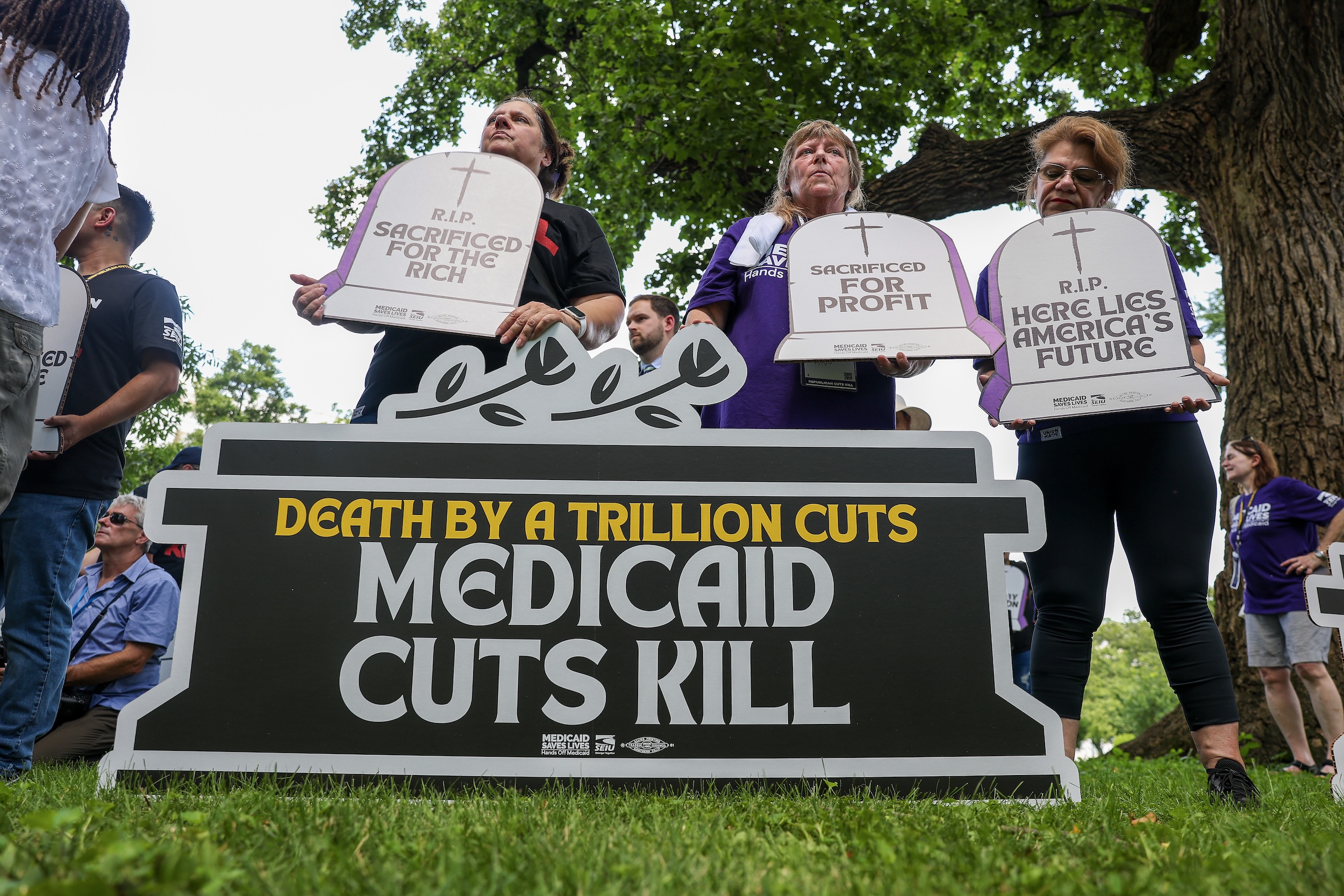Today, on the 60th anniversary of Medicaid, America faces a health care crisis of its own making.
Medicaid isn’t just a lifeline for the poor. It’s the backbone of our entire health care system and economic stability. Just in time for the 60th anniversary of Medicaid, however, Republicans made extraordinary cuts to the program in the “big beautiful bill,” despite scientific and expert warnings. These cuts to Medicaid could translate to more than 42,000 preventable deaths each year. That’s almost half a million lives lost over a decade simply because of bad policy choices. Slashing Medicaid isn’t fiscal responsibility. It’s a ticking time bomb for families, hospitals, and the economy.
President Lyndon B. Johnson established Medicaid, alongside Medicare, on July 30, 1965. In the past 60 years, Medicaid has significantly expanded access to health care, including basic doctor’s appointments and check ups, prescription drugs, and long-term care.
The proposed cuts threaten to rip coverage away from millions. Studies show that when Medicaid shrinks, more people delay care, more hospitals go bankrupt, and preventable deaths rise.
The Affordable Care Act, passed in 2010, built on the existing Medicaid system. That expansion has saved nearly 30,000 lives. In states that expanded Medicaid, premature deaths fell. In states that didn’t, they rose. Instead of building on that success, Republicans have taken a chainsaw to the program, and millions will lose their coverage.
Today, one in five Americans rely on Medicaid. Republicans paint a false picture of young men sitting on their couches, too lazy to get jobs, playing video games all day as the ones eating up Medicaid tax dollars. In reality, more than half of Medicaid spending goes toward the elderly and people with disabilities. The majority of adults on Medicaid are employed either full- or part-time. Nearly half of all U.S. births are covered by Medicaid. About two-thirds of nursing home residents depend on it.
Medicaid serves people in every corner of this country, from inner cities to small rural towns, Democrats to Republicans. In fact, about 20 million Medicaid beneficiaries lean Republican.
According to the Congressional Budget Office, nearly 17 million more Americans will become uninsured by 2034 due to the bill’s changes. Republicans insist they didn’t change Medicaid eligibility rules. While that’s true, it ignores the fact that the bureaucratic barriers of extra forms, tighter deadlines, and poor communication will ultimately cause mass disenrollment.
Here’s what that means in practice: People won’t know they’ve lost coverage until they show up in the ER. Parents will skip pediatric checkups. Cancer patients will delay follow-up care. Preventable conditions will become fatal.

Tasos Katopodis/Getty Images
Furthermore, economic health relies heavily on a community’s physical health. Republicans are supposedly the party of small businesses, but the proposed cuts will end up hurting small businesses in the long run. Once the cuts go through, more small businesses will have to pay and offer health care plans to their employees.
Ironically, Medicaid cuts will end up hurting Republicans’ own constituents the most. In rural areas, where politics often skew to the right, hospitals will have to enforce layoffs and potentially shut down due to patients being unable to pay for their care.
This isn’t about partisan politics, though. Ultimately, people will die and American lives will be lost. Republican or Democrat, we will all feel the crippling effects of slashing Medicaid.
Conservatives value strong families and thriving small towns—Medicaid cuts will devastate both. Liberals champion social safety nets—this would shred one of the biggest. Both sides claim to protect working Americans. Medicaid covers millions of Americans who are employed but earn too little to afford private insurance. When one in five Americans loses their safety net from Medicaid, we all feel the consequences.
So what can people do if they’re at risk of losing Medicaid?
First, make sure your contact information is current with your local Medicaid office. If you’ve moved recently, the system likely doesn’t know. The government won’t track you down to keep you covered. Second, if you lose coverage, act quickly: you’ll have a limited window to enroll through the ACA marketplace, your employer, or another public option. Visit healthcare.gov or contact a Medicaid navigator for help. Many hospitals and local officials also have staff who can walk you through next steps.
Cutting Medicaid will not make America healthier. It will do the opposite: create health care deserts, saddle hospitals with unpaid bills, and force taxpayers to absorb higher costs elsewhere.
Sixty years ago today, Medicaid was born. Today, we see the entire system at risk. If we truly want to make America a healthier, more resilient nation, we must protect Medicaid—not as charity, but as infrastructure.
Dr. Anahita Dua is a vascular surgeon, Associate Professor of Surgery at Harvard Medical School, and the Founder and Chair of Healthcare for Action.
The views expressed in this article are the writer’s own.

